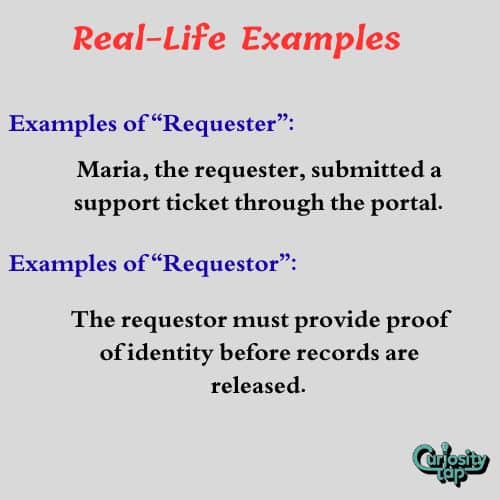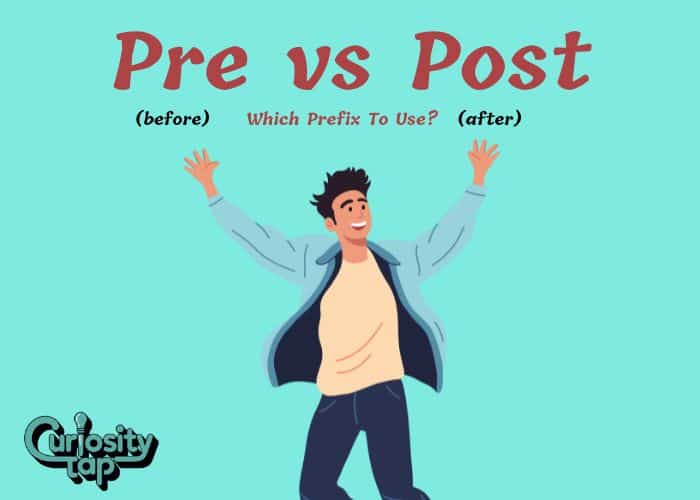Have you ever typed an email or drafted a formal document, paused at the word “requestor,” and wondered, “Wait… should that be ‘requester’ instead?” If so, you’re not alone.
Choosing between “requester” or “requestor” may seem like a tiny detail but in the world of professional writing, legal documents, technical specs, and clear communication, details matter.
The spelling you choose can shape how polished, credible, and even knowledgeable you appear.
Just like “advisor” vs. “adviser” or “contractor” vs. “contracter,” this isn’t just about spelling it’s about precision, consistency, and knowing your audience.
So let’s dive into this common confusion and answer it once and for all.
The Meaning of “Requester” and “Requestor”
Before we choose the right spelling, let’s understand the term itself.
Both “requester” and “requestor” are agent nouns words that describe someone who makes a request.
In plain terms, a requester/requestor is:
“A person or entity that asks for something or formally submits a request.”
This could be:
- A customer asking for a refund
- A colleague requesting access to a file
- A government agency submitting a formal request for records
Both versions mean the same thing in essence. But how they’re used differs sometimes significantly.
The Spelling Debate: Requester vs. Requestor
Let’s tackle the real question: requester or requestor which is correct?
✅ Short Answer:
Both are correct, but their usage varies by:
- Industry
- Audience
- Formality level
- Geographic region
Let’s break down how they compare in different contexts.
Requester vs. Requestor: A Side-by-Side Comparison
| Feature/Context | Requester (Preferred) | Requestor (Less Common) |
|---|---|---|
| Frequency in general English | ✅ Much more common | ❌ Rarely used in casual writing |
| Used in legal documents | ✅ Often preferred in legal contexts | ✅ Also seen in legal/government fields |
| Computer programming | ✅ “Requester ID,” “HTTP requester” | ❌ Rarely used in code or APIs |
| Sounds more natural in speech | ✅ “Requester” sounds smoother | ❌ “Requestor” may feel awkward |
| Suffix origin (-er vs. -or) | Anglo-Saxon (-er) | Latin-based (-or) |
| U.S. vs. U.K. usage | Common in both | Slightly more common in legal U.S. docs |
Summary:
- Use “requester” for everyday, technical, or customer-facing writing.
- Use “requestor” if you’re working in legal, government, or policy documents but only if that spelling is already being used consistently.
Where Do These Spellings Come From?
Understanding the etymology helps clarify the difference.
- “Requester” comes from the Old French requeste, based on the Latin requaerere (to seek or ask). It follows English norms of adding “-er” to verbs (like run → runner).
- “Requestor”, though technically correct, uses the Latin-based suffix “-or” (like executor, investor, advisor). It feels more formal and institutional.
These endings often signal tone or formality. In many word pairs (like advisor/adviser or contractor/contracter), one becomes the dominant standard.

Real-Life Examples: How Each Word Is Used
Let’s see how “requester” and “requestor” appear in different real-world settings.
Examples of “Requester”:
Used more in business, technical, and customer service contexts.
- Maria, the requester, submitted a support ticket through the portal.
- Our API logs the requester ID to track external calls.
- The requester asked for expedited processing of the shipment.
Examples of “Requestor”:
Seen in legal documents, formal government communication, or specific templates.
- The requestor must provide proof of identity before records are released.
- This form must be signed by the requestor and notarized.
- Only the original requestor of the patent can file an appeal.
Which Spelling Should You Use?
Here’s a simple decision guide:
✅ Choose “Requester” when:
- Writing emails, technical documentation, or internal tools
- Communicating in customer support, HR, or IT services
- Wanting your writing to sound natural, modern, and reader-friendly
✅ Choose “Requestor” when:
- Following an existing legal, government, or formal policy template
- Working in an environment that already uses this spelling consistently
- You’re required to use formal/legal terminology
❌ Avoid switching between the two. Be consistent throughout your document.
Related Synonyms You Can Use
If you’re writing and want to avoid repeating “requester” or “requestor“, consider these alternatives depending on context:
- Applicant
- Petitioner
- Inquirer
- Candidate
- Claimant
- Solicitor
- Submitter
- User (in technical interfaces)
Example:
Instead of saying “The requester must provide documentation,” you could write:
- “The applicant must submit the required documentation.”
Bonus Tip: Watch Your Audience and Context
Here’s something even pros often overlook:
Your audience’s expectations should shape your word choice.
For instance:
- Writing for developers or tech users? Stick with “requester.”
- Drafting court filings or formal proposals? Double-check if “requestor” is standard in your org or jurisdiction.
A quick check:
Use tools like Google Ngram Viewer, Grammarly, or even a quick Google search (in quotes) to compare usage. You’ll see that “requester” dominates in most use cases.
What Should You Avoid?
- ❌ Don’t mix both spellings in the same document.
- ❌ Don’t assume “-or” always makes a word more formal or correct.
- ❌ Don’t follow autocorrect blindly some tools might not flag “requestor” even when “requester” is preferred.
Consistency and context should always guide your choice.
FAQs
What is the correct spelling requester or requestor?
Both are correct, but “requester” is far more common in general English. Use “requestor” only if your field or document style requires it.
Is “requestor” a real word?
Yes, “requestor” is a valid word, mainly used in legal and formal documents. It’s just less common than “requester.”
What does requester mean?
A requester is someone who makes a request, whether for information, action, access, or service. It’s the preferred spelling in everyday and technical English.
Why are there two spellings requester vs. requestor?
It comes down to word formation. “Requester” follows the -er pattern common in English. “Requestor” is a Latin-rooted variation with a slightly more formal tone, often seen in legal writing.
Final Thoughts: Choose Wisely, Write Confidently
When it comes to “requester vs. requestor,” the choice might seem minor but small spelling decisions can impact how professional, clear, and trustworthy your writing appears.
✔ Use “requester” for general, technical, or customer-facing writing
✔ Use “requestor” if the document or industry prefers it
✔ Above all, stay consistent and consider your audience
You’ve now got the clarity you need to make the right call and write with confidence.
Let me know if you’d like a quick-reference grammar guide, or a template using these terms!
Read more knowledgeable blogs on Curiosity Tap
Is this article helpful?

Jackson Pearson is a passionate educator and language enthusiast behind the blog Jackson Pearson. With years of experience in teaching and writing, he specializes in simplifying complex grammar rules, breaking down tricky vocabulary, and crafting learning guides that are both engaging and practical. His mission is to help readers boost their English skills whether they’re beginners or brushing up for fluency. Through every article, Jackson brings clarity, structure, and a spark of curiosity to the world of English learning.



